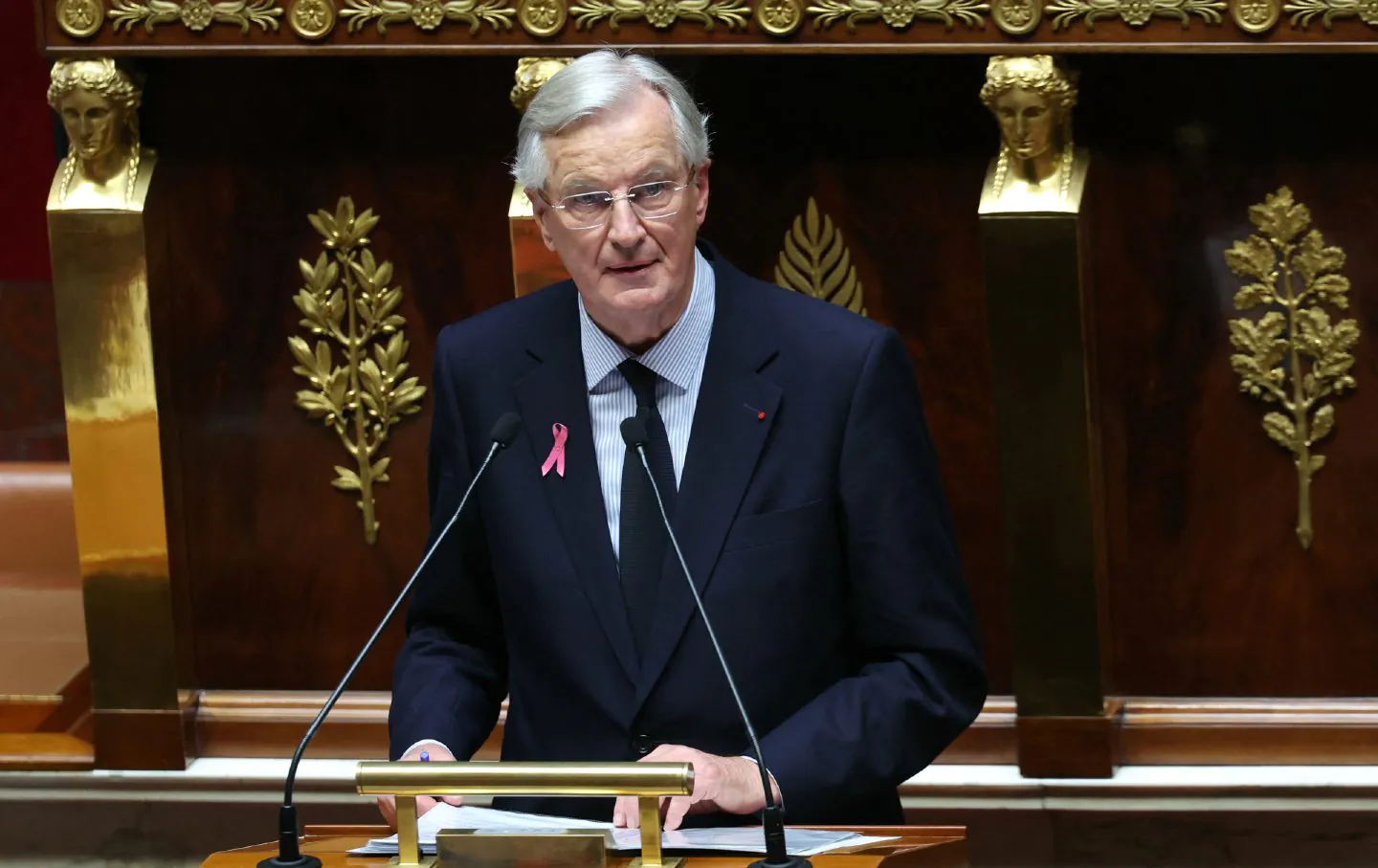[ad_1]
Emmanuel Macron’s unofficial agreement with Marine Le Pen.
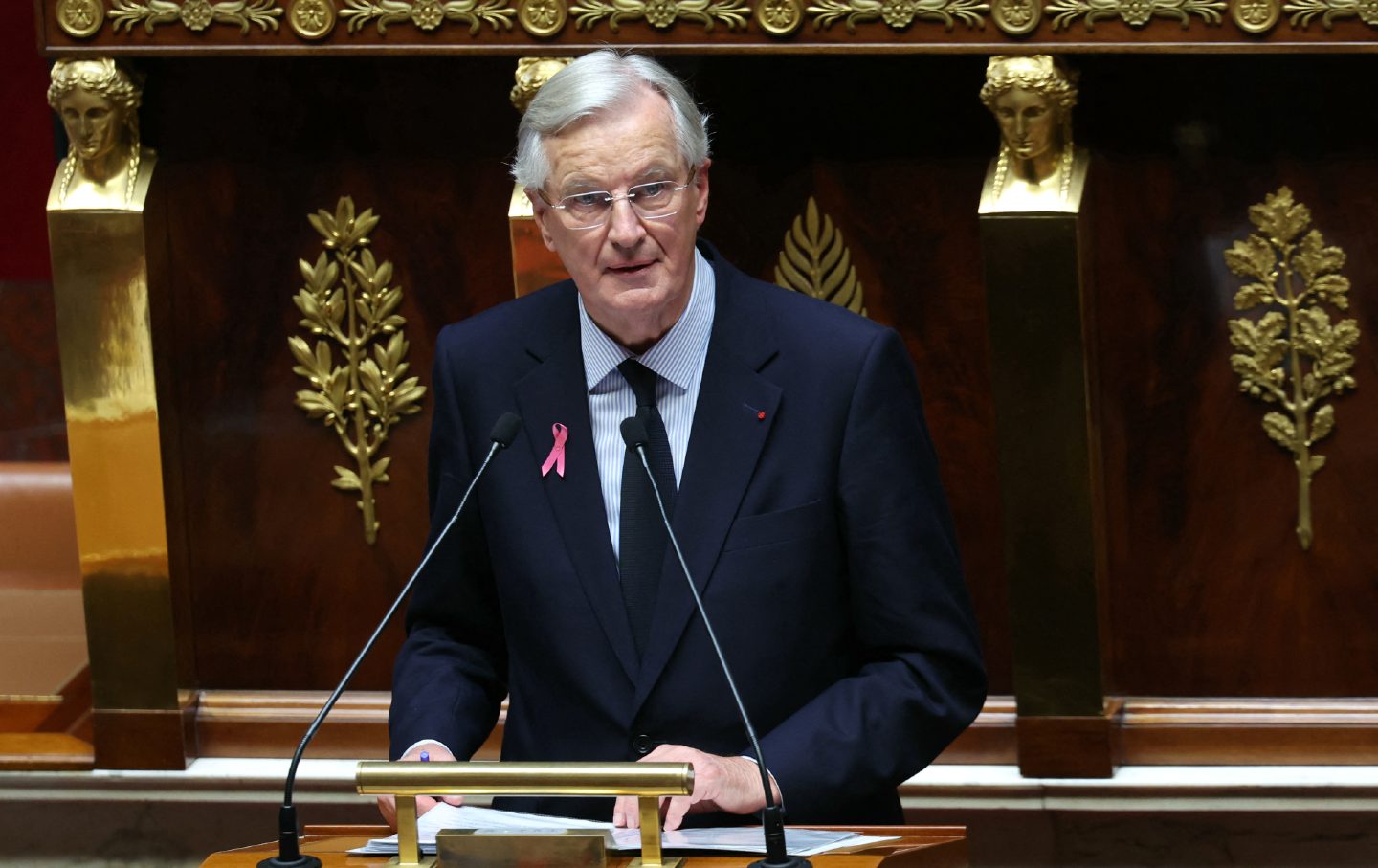
Two-thirds spending cuts, one-third tax hikes: that’s the ratio newly appointed Prime Minister Michel Barnier is trying to sell as he maneuvers the austerity budget for 2025 through the divided French parliament. “Our colossal financial debt is a real sword of Damocles over us,” said the 73-year-old prime minister on October 1, in his first speech in the Parliament, and he expected a deficit reduction of 60 billion euros for the next year alone.
Fiscal austerity has quickly become a dominant theme in French politics, with several international and domestic bodies admonishing the country for its budget deficit. Expressed as a percentage of GDP, France’s deficit is likely to rise above 6 percent in 2024, a result of extraordinary spending measures taken during the Covid-19 era, as well as the energy crisis and a slew of tax cuts. This summer, the European Commission brought France under the so-called excessive deficit procedure for exceeding the maximum debt ratio of 3 percent of GDP defined in the EU treaties.
Barnier and his cabinet are now pledging to return France to that level by 2029, calling for years of protracted austerity in a country already troubled by underfunded public services and growing economic inequality. The full outlines of Barnier’s budget have not yet been made public, but tax increases under consideration include a temporary levy on top earners (the government’s own estimate is 0.3 percent of the population) and France’s biggest companies. However, most of the effort comes from spending cuts. These may include the momentary freezing of pension payments, the increase of health care costs, the failure to replace retiring state workers, and the downsizing of the ministries of employment and local governments. The initial draft of the 2025 budget is expected to be presented to the cabinet on October 10.
Current number

As a result of the fiscal austerity, the political uncertainty of last summer, when the left-wing New People’s Front won first place in the early parliamentary elections, will come to an end. The left-wing alliance, formed after President Emmanuel Macron dissolved the National Assembly on June 9, pursued a program of redistributing wealth, strengthening public services and public investment in the green transition. The NFP further defied expectations of an imminent victory for Marine Le Pen’s Rassemblement National to become the largest representative in the lower house, seemingly opening the door to a left-wing government.
Since the alliance was far from the 289 votes needed for an absolute majority, Macron did not have to accept the bloc’s election as prime minister. The president sought to keep his pro-business agenda intact and strongly opposed the possibility of an NFP government. He brushed aside the alliance’s candidate, Lucie Castets, before appointing Barnier, the EU’s former chief Brexit negotiator, in early September.
For Macron, the Barnier premiership was the lowest common denominator alternative. A member of the conservative Républicains, Barnier finds himself at the head of a governing coalition of former enemies that brings together parties from Macron’s previous coalition and the centre-right opposition. Even together, Macron’s partners and New Républicains allies hold just over 200 seats in the National Assembly, ahead of the 193 seats controlled by the NFP.
On Tuesday, October 8, the new prime minister survived the first vote of confidence, and 142 MPs lined up behind Marine Le Pen and her far-right allies decided to support the new government. It was typical of the uncertain road ahead for Barnier, who must hold his own coalition and multi-party cabinet together while appeasing Le Pen.
Even the prime minister’s overture to modest, temporary tax increases has caused tension within the minority coalition in power. Macron’s allies have argued that the tax hikes are a red line — even though the swelling budget deficit is largely the result of unfunded tax cuts Macron has passed since 2017. These include cutting the tax on large assets. real estate portfolios, the reduction of the flat-rate tax on capital gains, and the reduction of the corporate tax rate from 33.3 percent to 25 percent. When he left office in September, outgoing finance minister Bruno Le Maire boasted of the combined €55bn of tax cuts he had overseen, warning that any reversal would pose a serious threat to businesses.
The scuffle is likely to be little more than a fight for optics between the warring parties who currently share the cabinet and the governing coalition. The Républicain party, formerly the ruling party on France’s right, has been clamping down on taxation for years, and total government revenue-related liabilities will reach 43.2 percent of GDP in 2023. For reasons of legacy, Macron and his allies also want to quell anything that appears to be a permanent break from the pro-business creed. But it can also be politically suicidal not to maintain a facade of balance. Temporary extraordinary taxes on large corporations and most income earners are an easy price to pay for the long-term, permanent cuts in public spending and services that are the only way to contain the deficit.
Striving to improve the image of the extreme right in business circles, Le Pen was also interested in economic policy. In response to Barnier’s general political speech on October 1, Le Pen promised to “give [the PM] a chance, however slim.”
In return, the new prime minister must be careful to favor Le Pen, whose support will be crucial to Barnier’s survival in the coming months. Up to this point, the main olive branch has been the appointment of Bruno Retailleau, a senator from the hard-right Républicains, as interior minister – a task that also includes domestic policing and immigration policy.
Retailleau is known to be vying to make a mark on the county’s immigration system, perhaps through another round-up reform bill. This is the chance for the Macronist coalition and the Républicains and Rassemblement National opposition to revive many of the toughest elements of the bill passed last winter. However, in January, some parts of the law were thrown out by the Constitutional Council, which caused an uproar from the far right due to obstruction of judicial oversight and parliamentary power. Retailleau, who is open to constitutional reform enabling stricter immigration legislation, has warned in recent weeks that “a multicultural society carries the risk of becoming a multi-ethnic society” and that there is nothing sacred about the “rule of law”.
Macron and Le Pen – with Barnier as arbiter – could strike a deal on immigration and fiscal austerity. But new elections are still only a matter of time. Le Pen advocated new elections as soon as next summer, when the National Assembly can be constitutionally dissolved again.
Until then, the Új Népfront will probably be watching from the sidelines. The left condemns Macron’s refusal to form an NFP government and attempts to shore up the popular opposition, although the first union marches and party-organized protests in September and October were calm. In the coming months, the NFP’s most important challenge will be to preserve its unity, to counter the centrifugal tendencies of both the left-wing France Insoumise and the centrist Parti Socialiste. A wing of the centre-left establishment – mainly not in parliament, revealingly – dreams of smashing the alliance and drawing centrist elements of the NFP into an illusory pact with Macron.
Popular
“Swipe to the bottom left to see more authors”Slide your finger →
Even if unity can be maintained, the NFP will still struggle to break through its ceiling of support among the wider population. Despite this summer’s fireworks, the electorate appears frozen in third, and has largely remained so since 2017, with three blocs – a volatile left and center and Le Pen’s rising far right – vying for power. But there may be a silver lining to Macron’s unofficial deal with Le Pen. NFP is currently the only alternative.
Can we count on you?
In the next election, the fate of our democracy and our basic civil rights will be on the ballot. The conservative architects of Project 2025 seek to institutionalize Donald Trump’s authoritarian vision at all levels of government should he win.
We have seen events that fill us with fear and cautious optimism—all the while, The Nation he was a bulwark against misinformation and an advocate for bold, principled viewpoints. Our dedicated writers interview Kamala Harris and Bernie Sanders, unpack JD Vance’s shallow right-wing populist appeals, and discuss the path to Democratic victory in November.
Stories like this and the one you have just read are vital at this critical juncture in our country’s history. Now more than ever, we need clear-eyed and in-depth independent journalism to make sense of the headlines and sort fact from fiction. Donate today and join our 160-year legacy of speaking truth to power and raising the voices of grassroots advocates.
In 2024, which will likely be the defining election of our lifetimes, we need your support to keep delivering the insightful journalism you rely on.
Thanks,
The editors The Nation
More from here The Nation
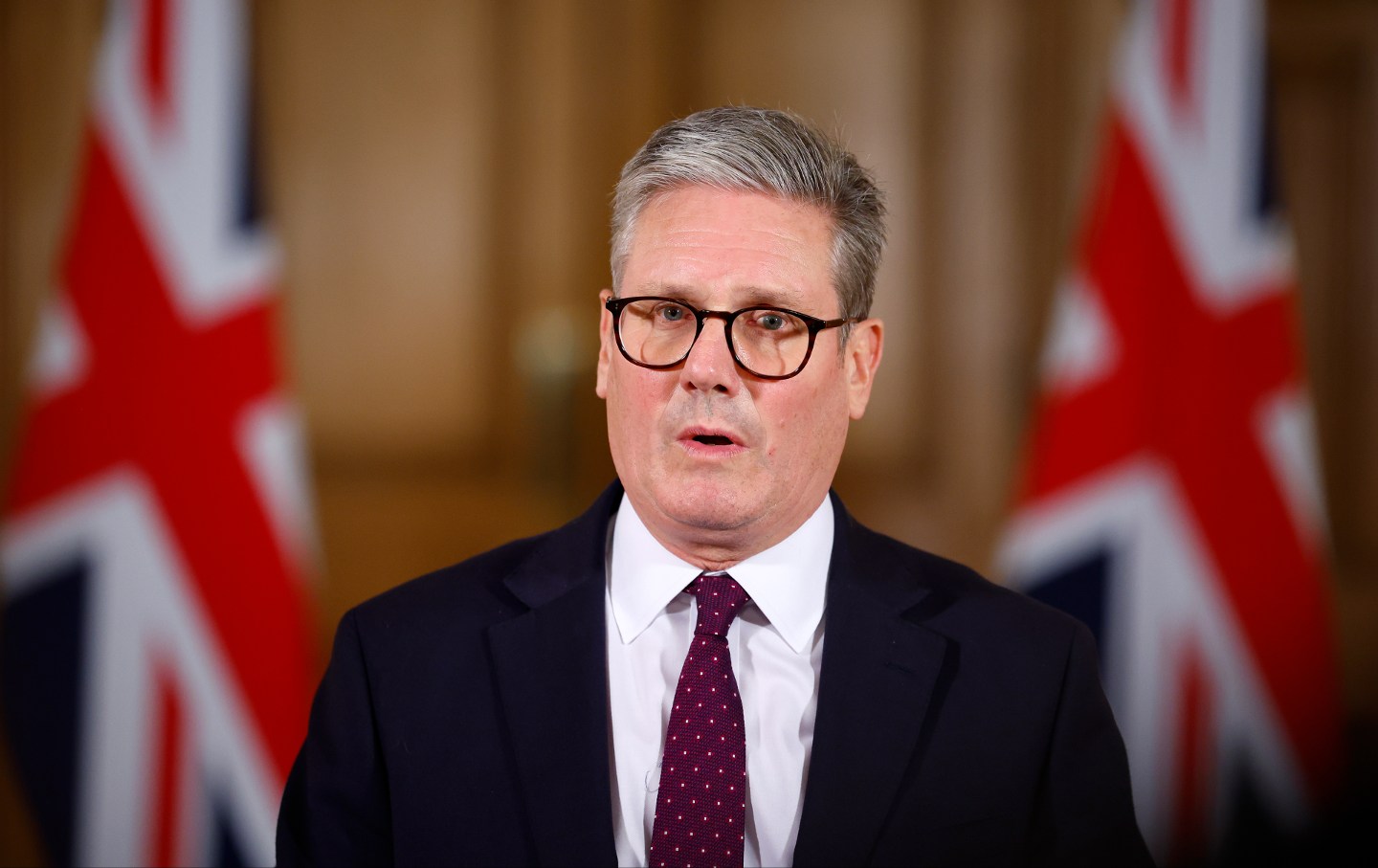
World / 10 October 2024 Immigration cuts Keir Starmer’s first few months in office have been comically terrible. Evan Robins Share Facebook Twitter Email Flipboar…
Evan Robins
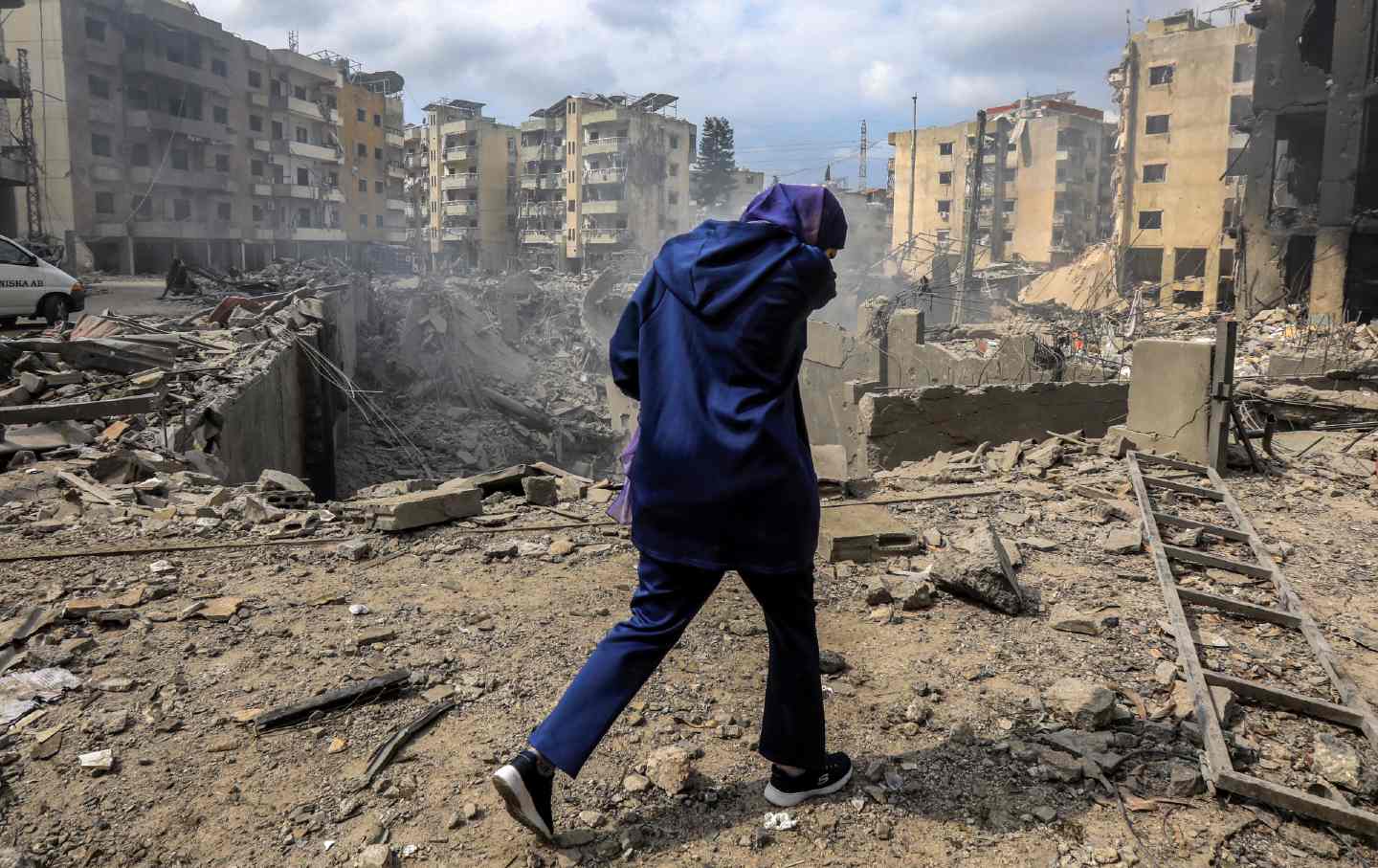
The leveling of Lebanese border towns is a continuation of Israel’s Gaza policy: total destruction and ill-defined goals.
Séamus Malekafzali
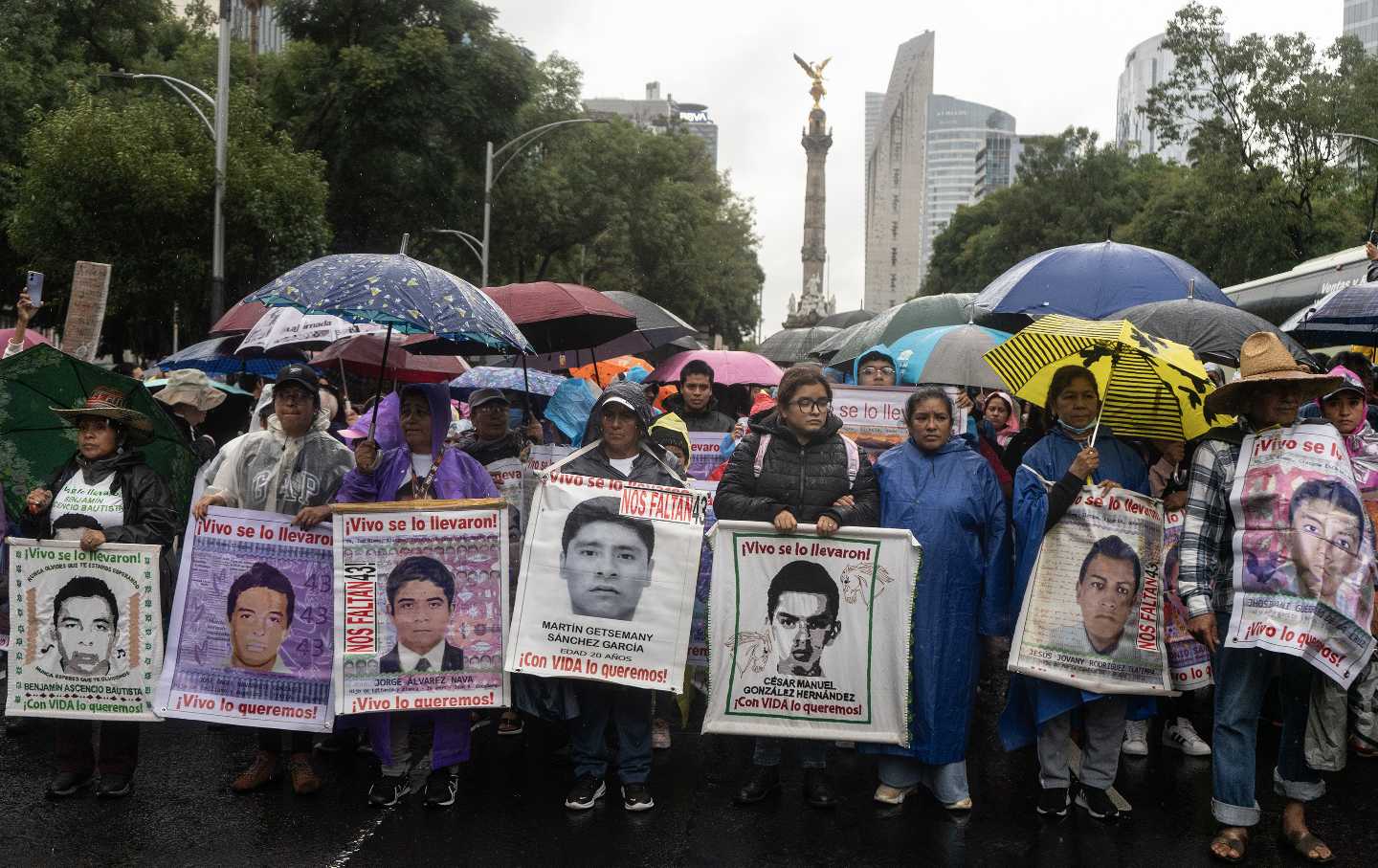
On the 10th anniversary of the violent disappearance of 43 students in Iguala, the victims’ families say they have been betrayed by Mexico’s outgoing president.
Ann Louise Deslandes

Two young men, one Palestinian and one Israeli, who both lost people they loved very much to the conflict, spoke about reconciliation, friendship and peace.
Helen Benedict

